Adopt a School — Secure a Future!
‘Adopt a Future’ is now planned as a five-year project that will conclude when these boys finish their...
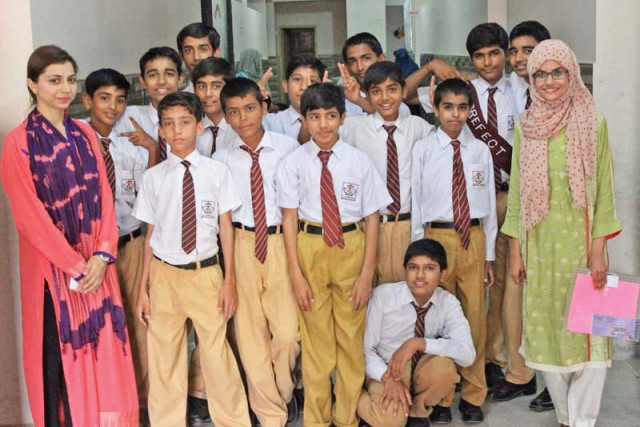
Establishing a special economic zone focused on the agriculture and dairy or poultry sector could provide an environment for potential local and foreign investors. PHOTO: FILE
When it comes to caring for children, there is nothing more important than giving them quality education. In Pakistan, unfortunately, this has not happened at the government level. Our education sector is faced with numerous challenges, ranging from quality to the accessibility of educational facilities available to the majority of children. To address these gaps, a number of initiatives have, however, been launched at the civil society level. One such initiative is ‘Teach for Pakistan’ that was established in 2010 as part of ‘Teach for All’, a global network of social enterprises.
For a brighter future : School for poor children an educational oasis
The founding fathers were Saeed Hadi and Khadija S Bakhtiar and the cornerstone funding and strategic backing was provided by the Aman Foundation. The main focus of the work has been to improve educational opportunity for students in under-resourced schools in Pakistan. Over the past five years, ‘Teach for Pakistan’ has placed 147 teachers in 29 schools across Karachi and Lahore. What is unique about this initiative is its capacity to create a lasting impact by not just educating the child but also developing educators for the future.

The core of the initiative is the ‘Teach for Pakistan Fellowship’, an internationally-recognised leadership development programme that offers a two-year leadership development fellowship, where leadership development begins at the Summer Institute - an intensive six-week training seminar on the theory and practice of teaching - after which fellows begin teaching at their placement schools as full-time teachers. Based on the experiences they gain in their first year, fellows in the second year then develop and implement creative solutions within a designed project to address the challenges their students face in the classroom and community.
One such fellow initiative is the ‘Adopt a Future’ project, launched by ‘Teach for Pakistan’ fellows Hafsa Alvi and Muketaj Salim, currently placed at Government Girls Secondary Campus School, Gizri, Karachi. This school provides secondary level schooling only for girls. To provide for the boys, they needed to transfer to another school. After engagement with parents, the two fellows discovered that most had not decided which schools their children would be attending next year. It was quite likely in fact that these boys would drop out of school or take a gap year in order to start working full time. This, they found, was something not unique to this case.
Status of education:Teachers not to blame for poor system, report says
According to a study by The Department of Education, Government of Western Australia, 2015, evidence from different educational settings suggested that when the transition from primary to secondary occurs, there is potential for students’ educational progress to stall if measures are not taken to assist them to adjust to their new schools. Given the risks involved with the students they were working with, the fellows knew they had to do something. They researched and found that over 90% of the parents wanted their children to attend a private school but could not afford to do so. This finding gave birth to the project, ‘Adopt a Future’, and adopters were then invited to take the future of these 17 students in their hands by paying a monthly fee of Rs1,500 per student. At the same time, Alvi and Salim also collected funds to pay for their course books.
‘Adopt a Future’ is now planned as a five-year project that will conclude when these boys finish their Matriculation. The boys are placed at a private school located in the Gizri area, The Rose Academy, run by The Rose Education and Welfare Society, an NGO that has been very supportive to the initiative. According to Alvi, during these past eight months, the students have shown positive changes in attitudes as well as academics and, unlike their previous school, all courses at the new school are now in English, which is helping them get a good grasp of the language. In the words of Noman, one of the beneficiary students, “It is the environment that made me eager to study. We are so serious now towards studies that even in break time we stay in the classes and study.”
‘Adopt a School’ is just one example of what can happen if innovative solutions are implemented with passion and commitment for positive change.
Farhan Anwar is an urban planner and runs a non-profit organization based in Karachi city focusing on urban sustainability issues
Published in The Express Tribune, November 16th, 2015.

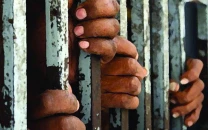
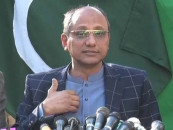
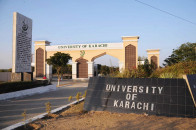
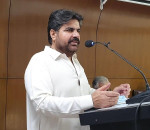
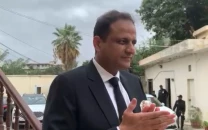
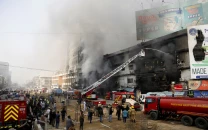


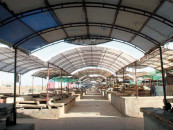
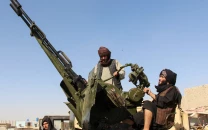
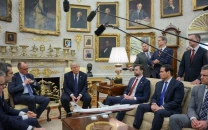







COMMENTS
Comments are moderated and generally will be posted if they are on-topic and not abusive.
For more information, please see our Comments FAQ